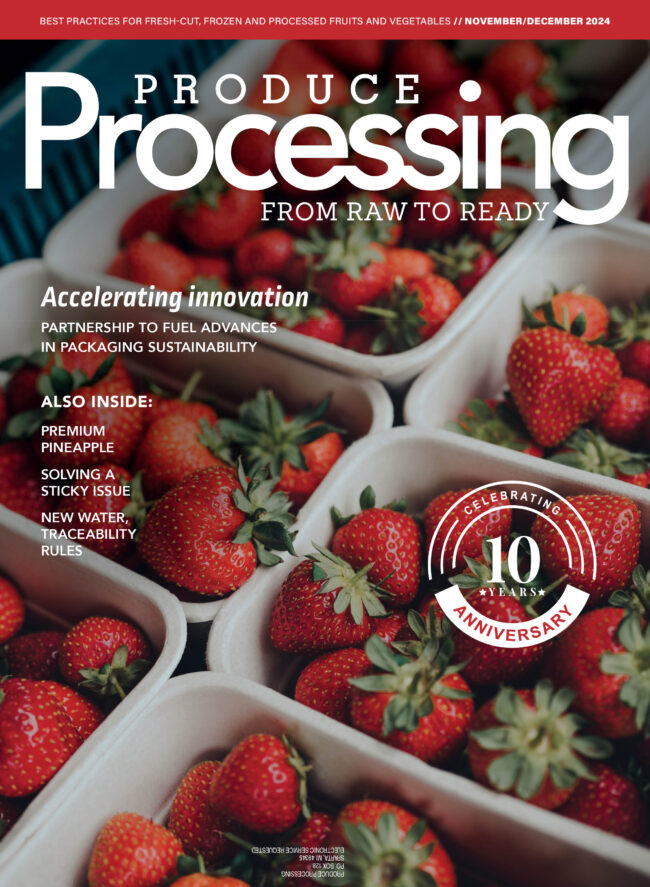Why Belgium is the world’s largest exporter of frozen fries
By Melanie Epp | Contributing Writer
It’s no secret that Belgians love their fries. In fact, the mere mention of “frietjes” can lead the most reserved Belgian to wax poetic, inspiring lengthy, almost romantic discussions on the best local “frituur” or how mayonnaise should be served: slathered on top or on the side.
To Belgians, though, the potato is so much more than just a means to make fries. It is a household staple that’s integral to their culture, their landscape and their economy.
The world’s largest frozen potato exporter
In 2018, the Belgian potato processing sector achieved record growth, exceeding 5 million tons of processed potatoes. Not only did the processing sector break the record, it was also the sharpest annual increase on record since the 1990s.
In 1990, the country turned approximately 500,000 tons of potatoes into fries, mashed products, chips, granules and flakes. Last year, by comparison, the sector reported a 1,000% increase, making Belgium the largest exporter of frozen potatoes in the world.
Processed potato products are shipped from Belgium to more than 150 countries around the world, providing a net trade value of more than €1.75 billion ($1.97 billion) each year.
According to Belgapom, the Belgian potato trade and processing industry association, in the French-speaking region of Wallonia, low cereal prices and a sharp decline in the cultivation of beets has made the potato one of the most important crops produced. Processing alone accounts for some 5,000 jobs and thousands of indirect jobs in the region.
Belgium was able to achieve this incredible growth due to increased demand for potato products on the world market. In Asia and South America, a growing middle class is driving demand for convenience products, including Belgian fries.
Despite the setback of the 2018-19 growing season — which was greatly impacted by a lengthy drought followed by intense heat waves — a record harvest in the second half of the 2017-18 growing season contributed to the large supply of potato products.
The future for the processing sector looks bright as well, as 2018 also saw significant investment, reaching a total of $350 million.
Belgian production in numbers
Both the soil and the climate of northwestern Europe where Belgium is situated are perfect for potato production, which is why the region produces some of the highest yields in the world. Across the country, more than 3,500 Belgian farmers produce nearly 100,000 hectares of potatoes at an estimated value of €350 and €550 million euros ($394 and $620 million).
With the aim to improve quality and quantity, Belgian farmers continue to invest in sustainable cultivation practices and logistics.
One of those investments is a digital platform called WatchITgrow, which was launched to support growers in monitoring arable crops. WatchITgrow combines satellite data with weather data, soil data, IoT data and field data that is provided by the grower to make decisions that help increase yields.
The data collected is analyzed and used to provide growers with more timely and personalized advice. Growers who collect and submit crop-related data are eligible to receive a financial bonus of €250-750 from their buyer. With this financial support, the buyers hope to encourage farmers to use new digital technologies. Doing so will help them to strengthen the country’s agricultural sector.
To help growers improve quality, companies like Mydibel, which develops, produces and commercializes potato products, puts together test fields for variety research. By cultivating various varieties under similar soil and climatic conditions, the company gains valuable practical knowledge on plant distancing, plant depth and fertilization, among other things. It also allows them to compare promising new varieties, like Bintje, Fontane and Challenger.
According to Belgapom, it’s not entirely good news, though. Prolonged drought and high temperatures felt throughout the 2018-19 growing season have caused extensive damage to the potato supply chain. Low yields are likely to impact the bottom lines of many a business throughout the supply chain.
Wherever possible, Belgapom has worked to foster communication between growers and the companies that execute their contracts. Belgapom says that trade and industry have adapted their quality requirements in order to address the current issues they face, admitting that this has led to shorter fries.
The difficulties faced in the 2018-19 growing season will continue to be felt in 2019, as the amount and quality of seed potato was also impacted.
Belgapom is looking to an imminent decision on the use of the sprout inhibitor CIPC (chlorpropham) by the European Commission as another potential setback. Should it have its authorization revoked, Belgian farmers would no longer have access to CIPC. The sector has been examining alternative solutions, but is not yet ready for such a monumental change. Not only will it require training, but also significant investment in potato storage.
Despite the challenges ahead, stakeholders across the supply chain remain positive. While the development of the processing sector will continue to work to meet global demand, some of the supply may need to come from neighboring countries.
In the meantime, Belgium’s major players continue to work together in order to support sustained growth and investment in what has come to be part of their national identity alongside waffles, chocolate and beer.







